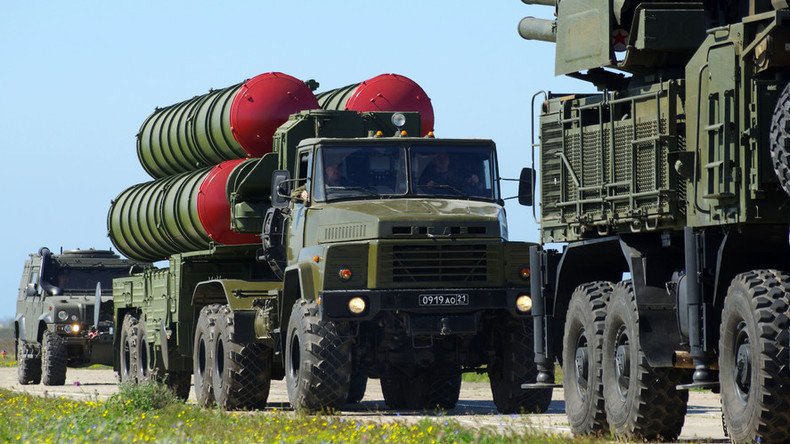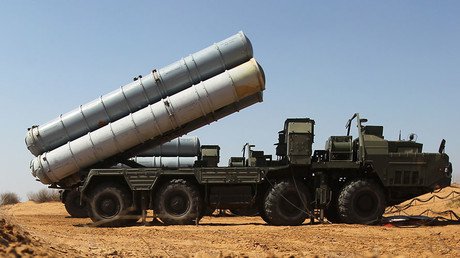Russian deliveries of S-300s to Iran ‘ahead of schedule,’ arms export official says

Iran is receiving its first deliveries of Russian-made S-300 air defense systems well ahead of schedule, and Tehran is in talks with Moscow about the purchase of other weaponry, Russia’s top arms export official said.
Russian deliveries of S-300 anti-aircraft systems to Iran are going as planned, the head of Russia's federal arms exports service, FSVTS, told journalists on Tuesday.
“I would even say that we’re well ahead of schedule,” Fomin was quoted by TASS as saying. “Hopefully, everything will be fine.”
He added that Russia and Iran have additionally discussed the procurement of other military equipment, but did not elaborate on the issue: "The talk is about only authorized items which are not on the UN list [of prohibited offensive weapons systems]."
Iran has had a long-standing interest in purchasing the S-300s, believed to be one of the most reliable and efficient systems of its kind, to boost its air defenses in an uneasy security environment.
Talks to sign the contract stalled in 2010, but resumed in April last year after a landmark nuclear deal between Iran and six leading world powers was reached, leading to the lifting of international sanctions which had been imposed on the Islamic Republic.
Earlier in April, the Iranians demonstrated the newly-arrived S-300 during the annual National Day Parade. The weaponry parade also included long-range target acquisition radar, a short-range radar station, a command post and a mobile radio antenna – all carried by lorries.
Iran’s domestically-produced advanced weapons like Ghader, Nasr and Fakour missiles, Kasta surveillance radar, Hag and Rapier missile defense systems, and Iran’s analog of the S-300, the Talaash-3, went on display as well.
Iran bought the latest variants of the system, S-300PMU-2 Favorite, TASS reported during the 2015 Dubai Airshow.
S-300s have been operated by a number of countries, including Algeria, Azerbaijan, Belarus, Cyprus, Kazakhstan and Vietnam. Russia last supplied S-300 systems abroad in 2010, when 15 squadrons were delivered to China.
Production of S-300 systems was then suspended as Almaz-Antey, the main producer of Russian air defenses, launched production of the next-generation of S-400s. Although none of the S-300s have been used in armed conflicts worldwide, it is considered a highly effective surface-to-air system.













